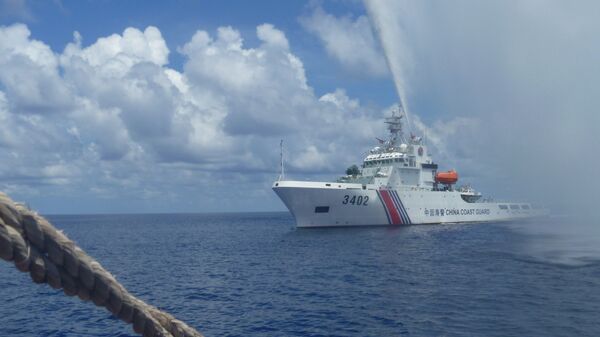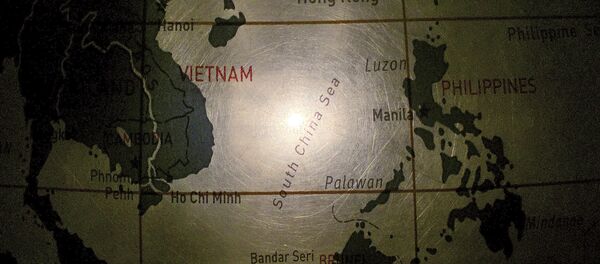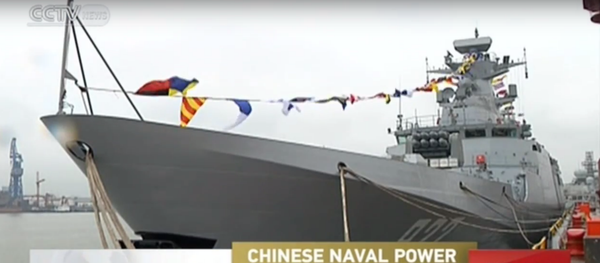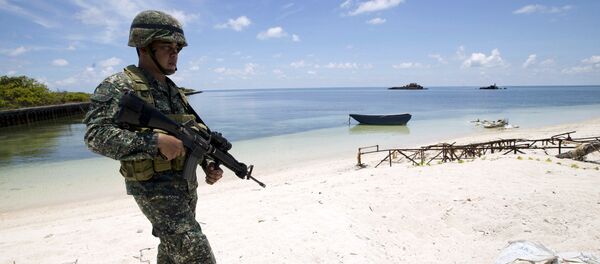The decision of the Hague-based Permanent Court of Arbitration that Beijing has no legal basis for its claims in the South China Sea may instigate yet another geopolitical crisis, this time in the Asia-Pacific region.
Following the announcement of the verdict, Beijing responded that it considered the ruling "null and void," with "no binding force."
"China's territorial sovereignty and maritime interests in the South China Sea, under any circumstances, will not be affected by the award," Xi Jinping said on Tuesday afternoon while meeting with European Council President Donald Tusk and European Commission President Jean-Claude Juncker in Beijing, as quoted by the Global Times.
"The Court has voiced its opinion but it has no instruments to implement its decision. Therefore, it can neither force China to give up its [maritime] claims nor start doing anything in this direction," Lukyanov told Sputnik.
"But, of course, China has found itself in an awkward position, since [its rivals] will never miss a chance to poke it in the eye with The Hague ruling precedent. Beijing does not like to find itself in opposition to international institutions, as it itself always tries to appeal to international law and collective approaches in politics," the expert underscored.
It is not excluded that other regional players will follow in the Philippines' footsteps, filing lawsuits against China via the Hague-based Permanent Court of Arbitration, he stressed.
"Therefore, the Hague Court decision is yet another step toward exacerbating the ongoing conflict in the region. China has already announced that it does not recognize the decision. But since [The Hague] is an international authority, [such a stance] spells trouble for Beijing," he noted.
At the same time, the US runs the risk of losing its influence in the region. If Beijing fails to obey The Hague ruling, Washington will have to either retreat, thereby recognizing China's growing regional influence, or enter a conflict with the People's Republic.
The expert remarked that the ruling may also provoke Beijing into establishing an air defense identification zone (ADIZ) over the South China Sea that may potentially result in a large-scale global conflict.
In his interview with the Russian online newspaper Svobodnaya Pressa, Valery Kistanov, Head of the Center for Japanese Studies at the Institute of Far Eastern Studies of the Russian Academy of Sciences, echoes Lukyanov, stressing that The Hague ruling will only exacerbate the situation in the region.
"It was clear since the very beginning that China would not obey this ruling. It will continue its activities in the South China Sea, despite the criticism from its neighbors which are involved in the maritime dispute, and from the US," Kistanov underscored.
Washington's involvement in the maritime dispute is quite understandable: the US wants to maintain its hegemony in the region under the pretext of preserving freedom of navigation (FON).
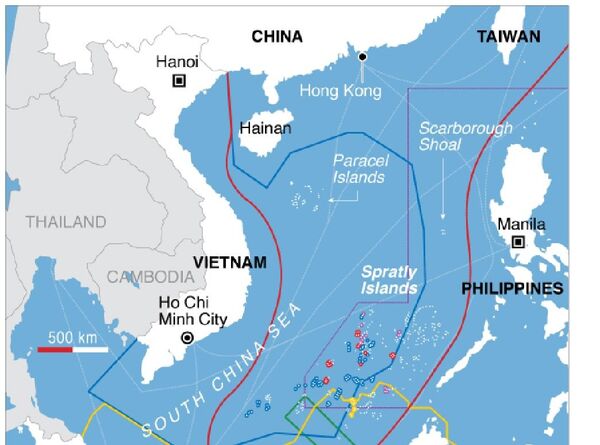
"A big geopolitical game is going on. China believes that the US should not exert its military dominance over the Pacific basin. For their part, the Americans want to maintain their control over the South China Sea under the pretext of the protection of freedom of navigation. And here enters Japan, which has its own interests. Japan is engaged in a territorial dispute with China over the Senkaku/Diaoyu islands in the Eastern China Sea. And this dispute remains unsolved," Kistanov explained.
"Japan has always insisted on the importance of the rule of law and the use of peaceful means [of conflict resolution], not the use of force and coercion. The countries concerned should submit to today's decision of the Arbitration Court," Japanese Foreign Minister Fumio Kishida said Tuesday.
According to Kistanov, the rich offshore oil and gas reserves of the South China Sea lie at the root of the fierce dispute.
Needless to say, the Philippines, Malaysia, Brunei and Vietnam are interested in exploiting the region's vast natural resources. Moreover, China's artificial islands, with their military facilities, spark concerns among Beijing's neighbors.
The expert envisions that tensions simmering over the Paracels and Spratly islands will become even more aggravated between China and its neighbors — Vietnam and the Philippines. It is likely that Beijing will follow its "nine-dash line" concept — the demarcation line used by the People's Republic of China for its claims to much of the South China Sea.
In any event, East Asia is steadily becoming a hotbed of maritime intrigue, the experts stressed.
